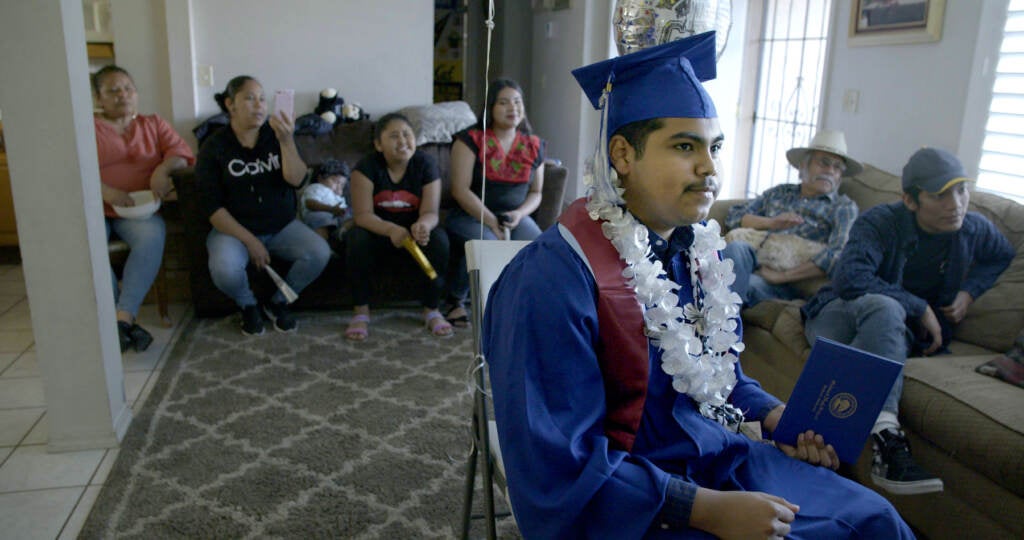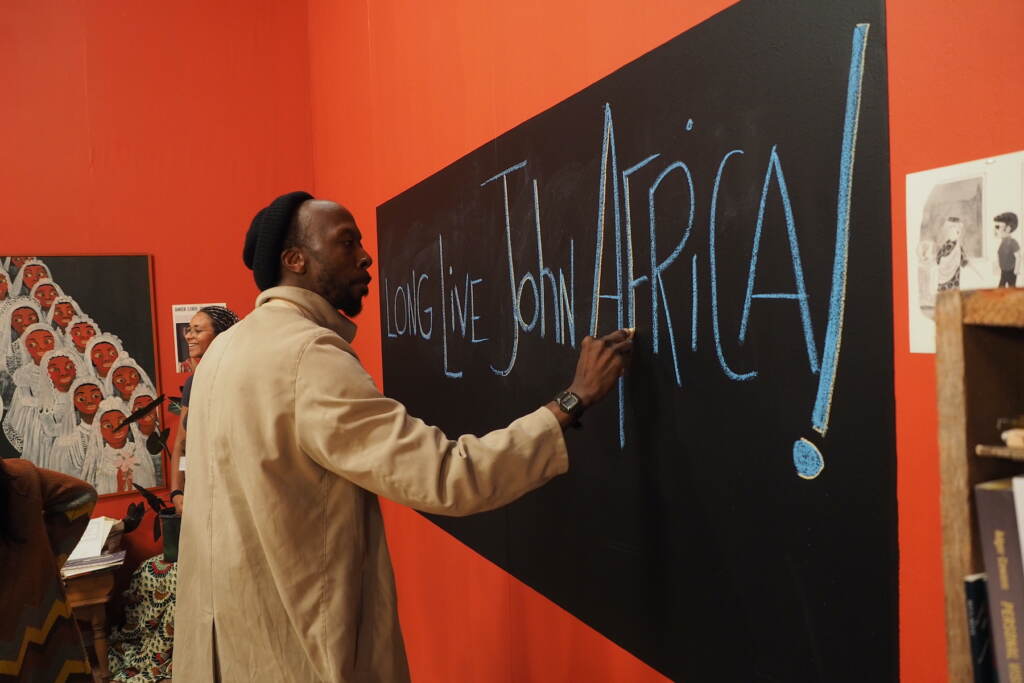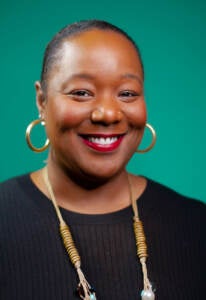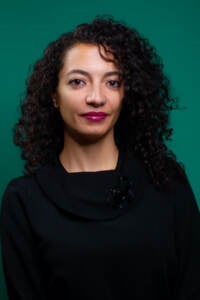When the BlackStar Film Festival began accepting submissions for the annual summer event in Philadelphia several months ago, the programmers were overwhelmed with material.
They expected a pandemic slump in new films, but it was just the opposite. Director Nehad Khader saw a spike of over 1,000 submissions, double what she received the previous year.
“I’m really impressed by folks who were able to take this time to do that work,” she said. “I’m also really impressed, I have to say, by people who recognize their limits and their boundaries and took much-needed time off and a mental break during the pandemic.”
This year is the 10th anniversary of BlackStar, an international festival of Black, brown, and Indigenous films that has earned a reputation for finding new talent, bringing them together, and fostering dialogues and collaborations.
Khader could not say why so many filmmakers submitted this year, after a year-and-a-half in a pandemic. She speculated that part of the reason may be practical: During the shutdown there was nothing for independent filmmakers to do but finish editing and mixing their passion projects.
Part of the reason may also be the prominence of demonstrations for social justice and the Black Lives Matter movement in 2020.
“People are finding that telling their stories and making their films is actually a great way to advocate for themselves, for their communities, to get their stories out there and to center themselves,” said Khader. “I think that is a part of these kinds of movements for social change that we’re seeing right now.”
Khader points to a short film “Negotiating Liberation: Don’t Be a Dream, Please Be Real,” an experimental film that reads as a kind of fashion or music video, about a pair of Black migrants falling in love in Dubai. “I think that is people telling their stories about themselves from outside of the margins,” she said.
Another short in the festival, “Madame Pipi,” is a documentary about Haitian immigrants in Miami who work as restroom attendants in nightclubs. The jobs can make them socially invisible, working literally in the shadows of toilets, as they send their earnings back to Haiti to support their families.

Filmmaker Rachelle Salnave started making “Madame Pipi” a few years ago and continued shooting through the pandemic in 2020, when many of the subjects donned face masks and shields, still doing restroom work despite the risk of infection.
“Homeroom” is another documentary started before the pandemic, whose filmmaker continued to shoot. Peter Nicks follows the class of 2020 at a high school in Oakland, California, as they mobilize to force their school to eliminate the presence of city police officers on campus, while also navigating their final year of high school during the pandemic.
“Homeroom” is the third and final film of a trilogy Nicks began a decade ago, about education, health care (“The Waiting Room,” 2012), and criminal justice (“The Force,” 2017) in Oakland.
Philadelphia native Ephraim Asili, now an assistant professor at Bard College in New York, will have his first feature-length film screened at BlackStar. “The Inheritance” is part narrative fiction, part film essay about the history of Black liberation. The protagonist inherits a West Philly house from his grandmother, still filled with books and records by the likes of Charles Mingus, Nikki Giovanni, and Gordon Parks. Loosely based on Asili’s own experience living in a West Philly group house, the protagonist uses the house to organize a political collective and experiment with socialist living.
Inspired by the New Wave films of Jean-Luc Godard, the film features readings from the works of writers like Audre Lorde and James Baldwin; performances by poets Sonia Sanchez and Ursula Rucker; archival footage of Shirley Chisholm, the first Black woman to be elected to the U.S. Congress; and cameo appearances by members of MOVE: Debbie Africa, Michael Africa, and Mike Africa Jr.

Debbie and Michael Africa Sr. are also featured in their own short documentary about maintaining their marriage while in prison, “By Your Side.”
Asili has shown his earlier, shorter work at BlackStar in the past. During one of those returns to his hometown he started taking photos of West Philadelphia, some of which were used in his filmmaking process that resulted in “The Inheritance.”
Khander said BlackStar is a place where new films are conceived.

“People meet their collaborators at BlackStar. Cinematographers meet producers, meet directors, meet writers, meet funders,” she said. “People oftentimes will bring a short film to the festival and then they’ll find the funding to make a feature out of it.”
This year’s BlackStar is a partial return to in-person movies. All of the films can be accessed online, as they were last year, but some will additionally be shown outdoors on the Parkway, at Eakins Oval, as free, evening screenings. On Sunday, a mini-festival of four programs will be screened at the Mann Center, inside its open-air canopy.

There will also be events for filmmakers, including opening and closing parties and a director’s brunch.
“Quite a few directors wanted to come to Philadelphia. I think everybody was really missing human touch and exchange. And so many of us got vaccinated,” said BlackStar founder Maori Karmael Holmes. “We’re really trying our best. The fact that Philadelphia is 75% vaccinated — which is an incredible number — and we still encourage social distancing and mask-wearing to protect other people. We’re going to be as safe as we can.”
The BlackStar Film Festival runs Wednesday through Sunday. More information can be found online.
"film" - Google News
August 03, 2021 at 05:02PM
https://ift.tt/3A3zoU5
BlackStar Film festival returns for its 10th year - WHYY
"film" - Google News
https://ift.tt/2qM7hdT
https://ift.tt/3fb7bBl
Bagikan Berita Ini














0 Response to "BlackStar Film festival returns for its 10th year - WHYY"
Post a Comment